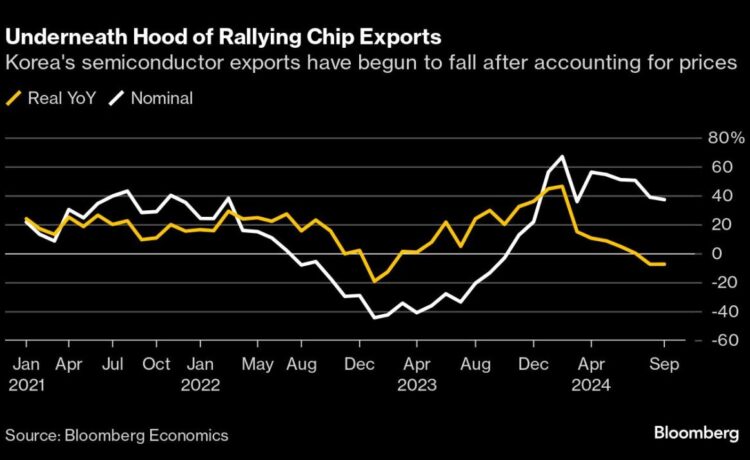(Bloomberg) — South Korea expects to continue its strong ties with the US regardless of the election outcome next month, the country’s finance minister, Choi Sang-mok, said Thursday.
Most Read from Bloomberg
“Whoever wins this election, Korea and the US are ultimate economic and security partners, so we will continue to invest and cooperate with each other, which is a win-win for both,” Choi said in an interview with Bloomberg in Washington. He cited investments by South Korean companies in American semiconductor and battery plants.
Yet the American vote — now less than two weeks away — adds to uncertainties weighing on the government in Seoul. Whether Donald Trump or Kamala Harris wins, most South Korean businesses expect trade barriers to rise, making it harder for them to maintain their earnings goals, a survey shows.
Trump, the Republican nominee, has vowed to escalate tariffs against China, a key South Korean trading partner, while Harris seeks higher corporate taxes that could weigh on demand for imports from foreign manufacturers.
Regarding the former president’s tariff proposals, Choi emphasized that a rules-based global free trade framework is in the best interest of Korea.
Trump has also referred to South Korea as a “money machine” as he reiterated a demand that Seoul shoulder more of the upkeep for American troops stationed on the Korean Peninsula.
The security ties between Washington and Seoul have strengthened since President Yoon Suk Yeol took office in 2022 along with economic relations as China emerged increasingly as a business competitor to South Korea. That has spurred more South Korean investment and production in the US, adding to pressure on the won at a time the Federal Reserve kept its rate high to combat inflation.
The won currently trades around 1,380 per dollar, weakening about 15% in the past three years. Choi, visiting the US for the annual meetings of the International Monetary Fund and the World Bank, said the authorities were aware of market concerns that the won has weakened relatively fast compared to other currencies.
“I am well aware of market concerns that the pace of the won’s movement is relatively faster than that of other currencies,” Choi said. “So we’re closely monitoring market trends while staying alert about currency volatility.”
















